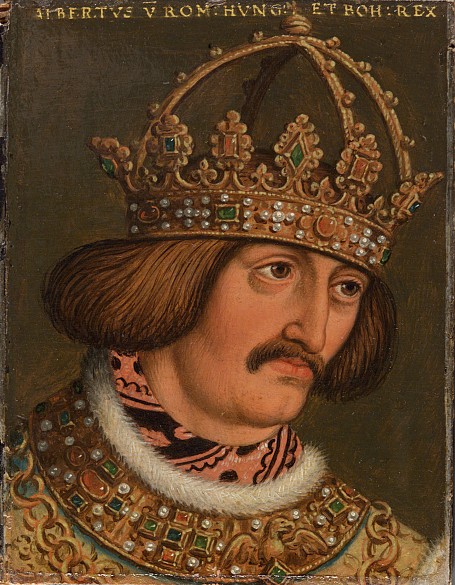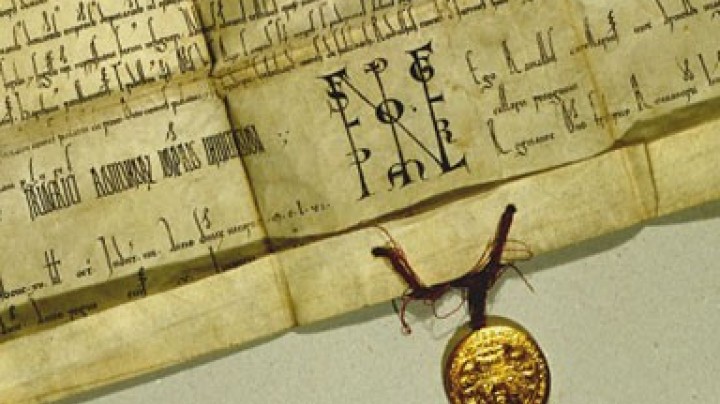Albrecht V: Win some, lose some …
As the son-in-law of the last Luxembourg, Albrecht inherited the crowns of Bohemia and Hungary. However, before he could fill his newly gained position of power, he died unexpectedly. The dynasty’s opportunity of acquiring these kingdoms had been lost for the present.
The clashes with the Hussite armies in the Bohemian-Austrian border area ceased after truces were agreed in 1434/35. The movement then collapsed when the radical Taborite wing was defeated by the moderate aristocratic party at the Battle of Lipany in 1434. In 1436 at the Council of Basel the Compacts of Iglau were agreed, leading to a final compromise. The national Bohemian church of the Utraquists was recognized. The name referred to the papal consent for communion to be given to laypeople in both kinds (wafer and wine), which at that time was reserved for priests in the Catholic Church. Sigismund was accepted by the Estates as King of Bohemia but died the next year in 1437. The House of Luxembourg had become extinct in the male line.
Having already been given the governorship in Moravia in 1422, Albrecht, as the husband of Sigismund’s only daughter, was now his successor. Albrecht’s claims were additionally confirmed by the hereditary agreement between the Habsburgs and the Luxembourgs that had been concluded at Pressburg in 1421.
In December 1437 Albrecht was accepted as Sigismund’s successor on the throne by the Hungarian Estates and crowned in January 1438. In March 1438, as the most powerful among the princes of the Empire, he was elected Roman-German king. In June 1438 he was crowned in Bohemia. However, this was only supported by the Catholic nobility; the Utraquist party, whose adherents were among the minor nobility and the citizens, rejected his claim. The latter party acclaimed Casimir of Poland, younger brother of the Polish king Ladislaus III from the Lithuanian House of Jagiello, as anti-king. It was not until February 1439 that Albrecht succeeded in suppressing his rival.
Albrecht was unable to savour his success for long, as he died on 27 October 1439 in Hungary near the episcopal city of Gran.
As king of Hungary Albrecht was buried in the no longer extant basilica at Székesféhérvár (Stuhlweissenburg), the coronation city of the kings of Hungary in the Middle Ages.












